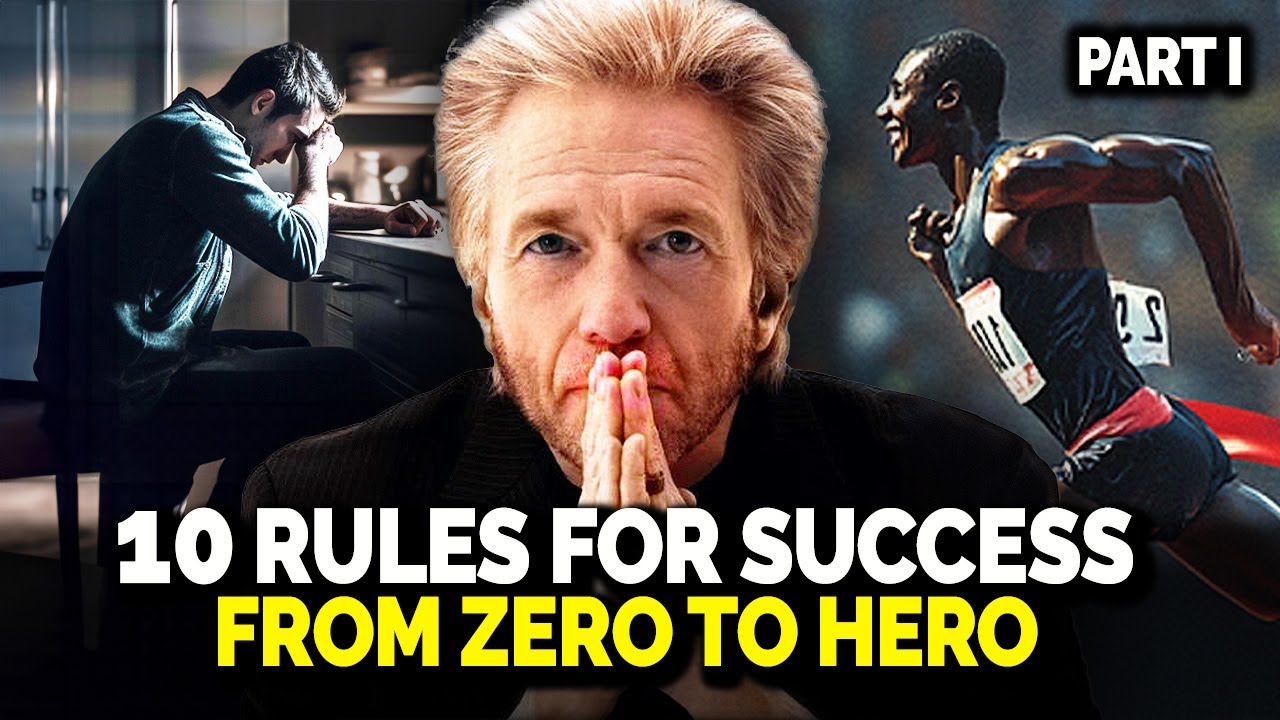How to Emotionally Detach from Someone - Carl Jung
Summary
TLDRThis profound video explores the difference between attachment and true love, revealing how emotional dependency masquerades as love and distorts our sense of self. Drawing on Jungian psychology, it emphasizes the importance of self-discovery, shadow integration, and detachment as acts of self-love. The transcript guides viewers through understanding childhood wounds, overcoming fear of loss, and embracing solitude to cultivate inner peace. It presents love as a choice, a voluntary sharing from fullness rather than need, and urges the audience to prioritize their own growth and consciousness. Ultimately, it reframes love as freedom, presence, and authentic connection, starting with oneself.
Takeaways
- 🧠 Emotional attachment is often mistaken for love, but it is primarily fear, dependency, and anxiety.
- 💔 True love does not demand possession, control, or constant validation from another person.
- 🪞 Attachment causes you to mold yourself to another’s expectations, losing your authenticity and self-worth.
- 🌱 Detachment is a process of self-love, allowing you to love without chains or fear of loss.
- 🔥 Letting go is painful because it confronts long-held fears of being alone, but it leads to emotional freedom.
- ⚖️ Authentic love arises from two complete individuals sharing their fullness, not from filling each other’s voids.
- 👶 Childhood wounds often create patterns of attachment, causing adults to seek love through need rather than choice.
- 🎭 Emotional dependency leads to idealization and serving others’ needs, rather than forming equitable relationships.
- -
- 🌊 Solitude, when embraced, transforms into a sacred space for self-reflection, healing, and personal growth.
- 💎 The ultimate love is self-love; once you cultivate it, external relationships enhance life rather than define it.
- 🛤️ Healing and detachment require confronting inner fears, embracing discomfort, and rejecting familiar but harmful patterns.
- 🌌 True love is the consequence of internal integration, not a goal; it flows from inner completeness and clarity.
Q & A
What is the main difference between attachment and love according to the transcript?
-Attachment is driven by fear, dependency, and the need for validation, often causing anxiety and self-betrayal. Love, in contrast, is freedom, choice, and expansion, allowing individuals to share their fullness without needing the other person to complete them.
How does emotional dependency manifest in relationships?
-Emotional dependency shows up as constant anxiety over the other person’s presence, checking messages repeatedly, molding oneself to meet the other's expectations, and feeling incomplete or lost without them.
What does Carl Jung's concept of individuation contribute to understanding love and attachment?
-Individuation involves self-discovery and integration, allowing a person to relate without losing themselves. It helps differentiate between need-based attachment and conscious love, fostering relationships from a place of completeness rather than emptiness.
What role does the 'inner child' play in adult attachment patterns?
-The inner child represents unhealed childhood wounds where love was conditional. If ignored, it drives adults to cling, seek validation, or repeat cycles of attachment in relationships as a way to fill that unresolved void.
What is detachment, and how does it differ from coldness or indifference?
-Detachment is a conscious act of self-love, allowing one to let go of fear, dependency, and unhealthy bonds while still loving. Unlike coldness or indifference, detachment involves maturity, awareness, and the ability to share love freely without pressure.
Why can people fall in love with 'potential' rather than reality, and why is it problematic?
-People project what they hope someone could become instead of seeing them as they are, often due to attachment patterns or fear of solitude. This keeps them trapped in unfulfilling relationships and delays healing and personal growth.
How does embracing solitude contribute to authentic love?
-Solitude becomes a sacred space to understand and embrace oneself. When one is comfortable being alone, external love is no longer a necessity, allowing relationships to be based on choice and mutual growth rather than dependency.
What does the transcript suggest about intensity and drama in relationships?
-Intensity and emotional drama are often mistaken for love because they provide adrenaline and stimulation. However, true love is calm, stable, and freeing, while attachment thrives on chaos and familiar suffering.
What practical steps does the transcript suggest to break the cycle of unhealthy attachment?
-Key steps include: recognizing attachment patterns, healing the inner child, practicing detachment, integrating the self, avoiding idealization of others, affirming personal boundaries, and choosing peace over fear or neediness.
According to the transcript, what is the ultimate form of love?
-The ultimate form of love is self-love and internal alignment. When a person becomes complete and aware, external relationships become complementary, not essential. True love is sharing abundance, not seeking it from another.
How does emotional attachment distort a person’s sense of identity?
-Attachment causes people to mold themselves to meet others’ expectations, hide authentic desires, and prioritize the other’s needs over their own. This creates a reflection or echo of the other person rather than a fully autonomous individual.
What does the transcript mean by saying 'the love of your life is not a person'?
-It emphasizes that the deepest, most transformative love is the love one cultivates for oneself through growth, self-awareness, and internal integration. This self-love is the foundation for all healthy, conscious relationships.
Outlines

このセクションは有料ユーザー限定です。 アクセスするには、アップグレードをお願いします。
今すぐアップグレードMindmap

このセクションは有料ユーザー限定です。 アクセスするには、アップグレードをお願いします。
今すぐアップグレードKeywords

このセクションは有料ユーザー限定です。 アクセスするには、アップグレードをお願いします。
今すぐアップグレードHighlights

このセクションは有料ユーザー限定です。 アクセスするには、アップグレードをお願いします。
今すぐアップグレードTranscripts

このセクションは有料ユーザー限定です。 アクセスするには、アップグレードをお願いします。
今すぐアップグレード関連動画をさらに表示

Is Love Really A Drug? | What Does Love & Heartbreak Do To My Body | National Geographic

Dependência Emocional - Parte 1

Why Do the Awakened No Longer Fall in Love? | Carl Jung

Gregg Braden Blueprint to Success | Part 1: From Zero to Hero

Como identificar e tratar a dependência emocional • Psicologia • Casule Saúde e Bem-estar

True Love — and the Myth of “Happily Ever After” | Francesca Hogi | TED
5.0 / 5 (0 votes)
